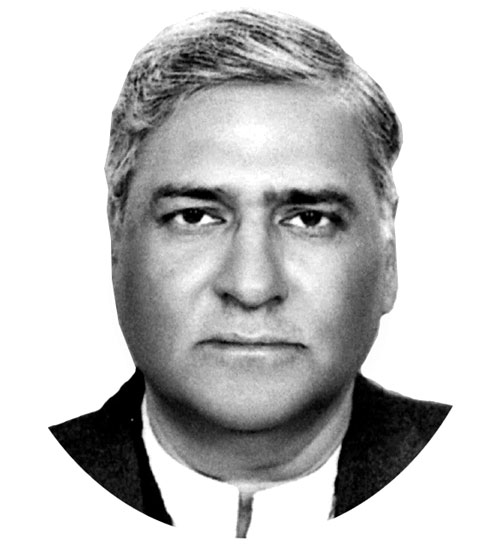Hassan Azam Shibbli
IN 2009, the PPP government was in power. The country witnessed an abnormal increase in sugar prices. Chief Justice Iftikhar Muhammad Chaudhry known for suo motu actions started hearing on the issue. He established a one-man Commission under Khalid Mirza the then Chairman, Corporate Law Authority to probe the whole issue. Mirza compiled a detailed report that cited all underlying reasons for increase in sugar prices. He advised the court not to interfere and let the market forces decide actual price of sugar. The court overlooked the recommendations of its own Commission and fixed the sugar price at Rs 40/KG. The market ignored the court’s ruling and sugar prices reached Rs 110/KG. Going forward in 2016-17 and 2017-18, Pakistan witnessed two bumper sugarcane crops and achieved record sugar production of 7.08 and 6.63 million metric tons (mmt) respectively, much higher than the local requirement of 5.2mmt.Thiskept sugar prices suppressed causing huge losses to millers and delay in payments to growers. The millers approached the government to allow sugar export without any subsidy but this request was declined. Later when the situation further deteriorated the government allowed export with subsidy for making payments to growers.
Unfortunately two back to back bad years made the farmers frustrated and a sizeable portion of growers did not cultivate sugarcane for 2018-19. The sugar production at the start of crushing season was estimated to be around 5.2 mmt; hardly sufficient to meet the local requirements. However, carried over stock of 1.3 mmt was likely to provide much needed cover and no shortfall in sugar stocks was anticipated. The PTI government instead of maintaining sufficient quantity of buffer stock, a must requirement to avoid price volatility allowed export of 1.1 mmt in January 2020. Thereafter sugar prices surged due to reduced crop size and the growers charging price as high as Rs. 240/40 KGs against support price of Rs. 190.
The situation further deteriorated due to final production of 4.8 mmt and sugar price surged to Rs. 110/kg at retail level. Instead of admitting its mistake, the government tried to tackle the whole issue through tough administrative measures. In a highly unusual move it decided to form a 7-member JIT headed by Wajid Zia, Director General FIA with members from Police, IB and ISI to probe the reasons necessitating the price hike, any illegal role of millers and other stake-holders in it. Interestingly, there was no qualified commodity expert in the Committee, casting doubts on its ability to probe the issue in a professional manner. These fears proved right as the superior courts granted stay against JIT report. Thus by doing so, PTI repeated the same mistake made by Supreme Court in 2009 by interfering in free market.
The JIT in its first report admitted shortfall in sugar production and procurement above the support price. However, its main stress remained on the alleged wrong doings of millers like tax evasion, less payments to growers, out of books and speculative sale of sugar. This was followed by forensic audit of 11 selected sugar mills and the same accusations were repeated. In the meantime, the government kept on making tall claims of bringing the sugar prices down by adopting tough administrative measures and through import but failed to control the sugar price. In the backdrop of above discussed scenario, the cane crushing season 2020-21 begun in November 2020 and as per early estimates sugar production was likely to be around 5.2 mmt only; hardly enough to cover the local demand. Shortage of sugar looks imminent as virtually no carried over stocks of sugar are available resulting in another price surge. As per All Pakistan Sugar Mills Association the farmers reselling sugarcane as high as Rs 260/40 kgs against support price of Rs 200.The cost of sugar cane alone is about 80% of the total cost of production and due to high sugarcane prices increase in sugar price is unavoidable.
Instead of taking a holistic view, PTI is blaming the millers of extra profiteering. However, this year full impact of 17% sales tax, increase in support price by Rs 10/kg and all time high prices of sugarcane are causing upsurge in sugar prices. The government must realize that international sugar prices are high and even import may not bring the prices down.PM Imran Khan is a strong advocate of wealth generation by private sector. He has already given several good incentives to export industries led by textiles. In a sharp contrast the government has not given a single incentive to the sugar industry. Government must know that sugar sector perhaps is the only industrial sector that has never asked for any incentive except subsidy and that too was required for export only.
The sugar sector is capable of earning $1 billion annually a feat it has already achieved in 2017-18. While blaming the millers and even calling them “MAFIA” it should be noted that some of the top business groups of Pakistan like House of Habib, Ghulam Farooque Group, Crescent Group, Shahnawaz Group and above all, Army Welfare Trust are also engaged in sugar production. All stakeholders should sit to formulate an action plan for the sanctity of support price, timely payments to growers and millers passing benefit of reduced interest rates to consumers. The government should also allow the free market forces to determine the actual price and avoid discriminatory policies. The country is already passing through a period of high geo-political and economic uncertainties and any mishandling of sugar crisis will bring nothing but more embarrassment for the government.
—The author is an Islamabad-based analyst.










